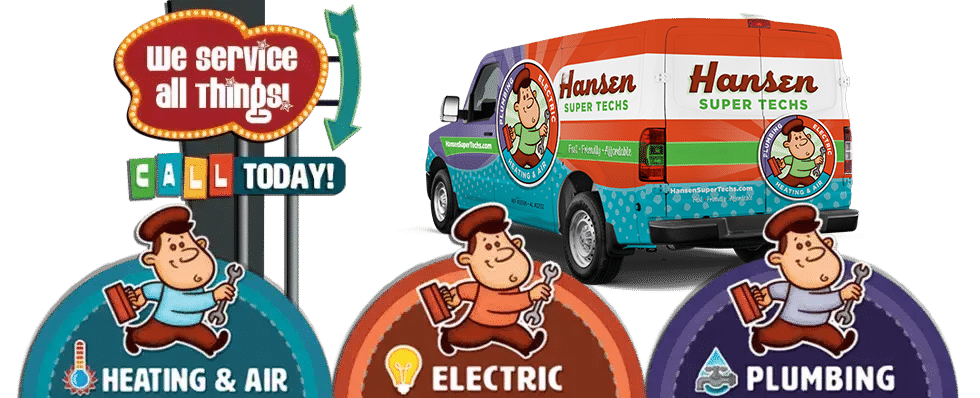The Most Efficient Heating System Every Homeowner Should Consider

The heating system is one of the most critical yet expensive energy-utilizing systems in every household. It is therefore essential that homeowners consider the most efficient home heating system before installation or replacement. Homeowners who want to keep their overall operating costs down must also consider energy efficiency.
Why Choose a Highly Efficient Heating System
The reason why homeowners should choose a high-efficiency heating system is because of its low operational cost. A lower efficiency model costs more to operate. A highly efficient heating system will slash your energy bills by 70%. Ultimately, a highly efficient heating system adds up to significant savings despite its high initial cost of buying and installation.
Choosing an Efficient Home Heating System
The efficiency of a heating system is measured by the percentage of energy used in heating a home and is rated by the (AFUE) Annual Fuel Utilization Efficiency. A furnace that has an annual fuel utilization efficiency (AFUE) of 90 means that $0.90 of each $1 used on energy heats the home. Heat pumps are rated by the total heat output represented as HSPF.
The efficiency of a heating system is also dependent on the climate of the area you live in, the size of your home, and the location of your home. Before purchasing a heating system, always remember that its functional capacity determines the capacity of heat it produces. A heating system must be adequately sized to the home it’s supposed to serve.
At Hansen Super Techs, we assist homeowners by providing skilled HVAC technicians who can assess these determinants and advise you about the most efficient heating system for your home.
Energy efficiency is critical because heating expenses skyrocket during winter months and consume more than half of the average energy budget. The homeowner must strive to achieve a highly efficient heating system with low-cost operations and try to keep the house warm and comfortable. There are several examples of efficient home heating systems.
Heating Pumps
A heat pump is considered the most efficient heating system on the market today. Heat pumps capture heat and move it from place to place inside the house. During summer, the heat pump removes heat from the home and provides cooling; during winter, the heat pump brings in warmth and warms the house. Heat pumps are incredibly efficient because they have the capability to produce energy that is four times more than the electricity that powers them.
Heat pumps are environmentally friendly; they provide adequate heating by using less electricity and, thus, are high efficiency. Heat pumps don’t generate any exhaust gases like carbon monoxide because they do not burn fossils to produce heat. They are, therefore, very friendly and safe to use.
There are two types of heat pumps, geothermal heat pumps and air source heat pumps, that homeowners can consider:
- Air Source Heat Pumps – Air source heat pumps use a refrigerant with a heat exchange system that takes in and releases air from the areas that surround the equipment. When heating, the refrigerant takes in heat from the outdoors and brings it inside.When cooling, the refrigerant takes in air from the evaporator coil or the indoor air handler and transfers it outside. This kind of heat pump can extract heat from the outdoors even when temperatures go below 32 degrees. The efficiency of the heat pump will dramatically reduce when temperatures fall.The refrigerant is a liquid that circulates between the outdoor unit and the heat pump’s indoor unit. The refrigerant circulates during the heating process; it changes forms from liquid to gas and vice versa. The outdoor unit absorbs heat from the unit’s surroundings and turns the refrigerant into gas.The gas is compressed into a liquid and is sent into the indoor unit. As the fluid travels down the indoor unit, it releases the air it had collected and warms the living spaces.
- Geothermal Heat Pump – A geothermal heat pump works efficiently when a loop (a series of pipes) is buried on the ground a few feet down, submerged in a water body, or drilled vertically deep in a loop system. The science behind this is that temperatures on water bodies and below the ground remain a constant 45-60 degrees all year. The loop is filled with water, or a refrigerant that picks up heat as it travels down the loop and releases it as necessary on the indoor living space.Geothermal heat pumps are very environmentally friendly and safe to use. They can cut a homeowners’ heating bill by 70%; thus, it’s very efficient. However, investing in a geothermal heat pump is quite expensive, and a homeowner would have to contend with digging trenches in the backyard for the loop pipe placement.ConsultHansen Super Techs your neighborhood heating contractors on state and federal tax credits that may be available for these systems.
Furnaces
Residential furnaces are the second most efficient heating systems. They are also the most common among homeowners. This is because furnaces use gas, oil, or electricity to heat living spaces. The older furnaces were not very efficient, but the industry has developed new models that boost their efficiencies through new technologies and dependable features.
The following are some of the most common furnaces:
- Gas – Most of the furnaces in use today are natural gas models. Gas, a plentiful natural resource, is supplied through installed supply pipes by local utility companies. Their heating efficiency is much lower than heat pumps. In recent years, natural gas has become very cheap, lowering the gas furnace operational cost. The only disadvantage is that the natural gas supply lines do not extend to remote areas, so this type of furnace may not be available for everyone.
- Electricity – Heating coils inside the electric furnace are heated to generate the heat that warms up the house. Electric furnaces are safe to use and are environmentally friendly since no carbon monoxide or other gases are exhausted from the process. Electric furnaces are higher in operations cost than gas furnaces because electricity is more expensive than natural gases.
- Oil – To produce heat, the oil furnace burns fuel. This fuel is delivered to the home by local suppliers using tanks. The homeowners must often monitor the oil level so that it doesn’t run out when needed most. These oil furnaces also use propane. For the furnace to produce heat, the oil or the propane is heated up, increasing operational cost making it relatively expensive.
Boilers
Residential boilers are the third most efficient heating system for homes. They are, however, less common than furnaces and heat pumps. Boilers work by producing heated water and then circulating it around the living areas using pipes and radiators.
Condensing boilers are more effective than regular boilers because they use a heat exchanger to tap heat from the gases before they are exhausted. The process allows the recovery of heat that could otherwise be lost through the ventilation and exhaust systems.
Need Further Assistance? Contact Hansen Super Techs Today
Our company prides itself on installing, diagnosing, servicing, repairing, and maintaining all HVAC units and systems. If you are looking for an efficient heating system around the Mississippi Gulf Coast, Baldwin County, or Mobile, look no further. Our team of experienced technicians will assess and advise you on the most efficient heating system for your house. Contact Hansen Super Techs for more information.

